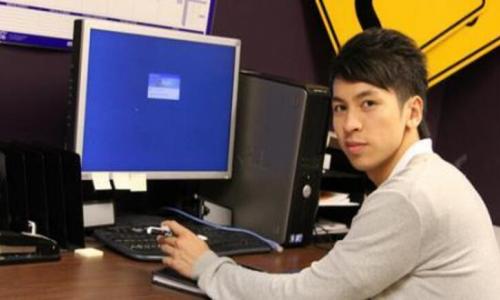
After what felt like endless applications and an interview where you managed to present yourself professionally (or at least with minor faux pas) – success! You’ve been invited to join the working world. Now, you have to figure out your place in it.
It’s tough to be the newbie in the workplace, where each day can feel like an extended interview, trying to prove yourself so your employer won’t regret their decision to give you a chance. Many employers have a probationary term, a time to assess the fit and performance of a new hire. This period of time can be even tougher if you are the kind of person who constantly doubts yourself, has little to no experience to draw on, or takes things too personally.
In my last co-op position, I started out with excitement and confidence that I could handle everything that was coming my way. There was a lot to learn, but I was prepared, right? Wrong. I was messing up, even on the little things, and I started to hate myself every time I made a mistake. I didn’t want to draw more attention to my disastrous work performance, so I kept these feelings of inadequacy tucked deep inside, where no supervisor would ever think to look, and did my best to never fail at anything ever again. Obviously, this method was not realistic, or sustainable. I would try this until I would inevitably mess up again, and hate myself more. It was a hard cycle to be in.
At the end of the summer when I had a check-in with my supervisor, I was not anticipating a glowing review. All I could think of were the things I had done wrong. But much to the surprise of my inner self-critic, my supervisor was happy with the work I had been doing. She didn’t care about all the little flaws in my work that I had been fretting over.
So where did all these feelings of despair come from? I didn’t understand when I started this job that you are not expected to be an expert right away. The idea of getting “good grades” doesn’t apply to the workplace in the same way, either. For example, I had been comparing myself to people who had been working there for years, while I had been employed for a measly few months. And just because you don’t succeed the first time you are given a task, doesn’t mean you’ve failed completely. In some cases, a failed attempt could even lead to an innovative new way of solving a problem.
Another thing I wish I had known is that it’s okay to ask for help. If you feel like you are making mistakes, or are unsure about your role, communicating your concerns with your supervisor or asking a fellow employee for guidance is a regular practice in healthy workplaces. Talk to your boss about what they expect from you, and ask them to review your performance every now and then, because it can help you become more confident in your work and gain more quality experience on the job.
I was my own harshest critic, obsessing over small mistakes without realizing they were insignificant. If I hadn’t been so down on myself, I probably could have been more focused, do a better job, and I probably could have enjoyed more of my time working there.
Instead of placing unreasonable expectations on yourself when starting somewhere new, take the time to understand your role in the workplace and enjoy the new experience.
Beyond the Blog
-
Read Haley's piece on putting your best foot forward in your job search.
-
Learn more about failure's silver lining.
-
Check out Sarah's reflections on imposter syndrome.















